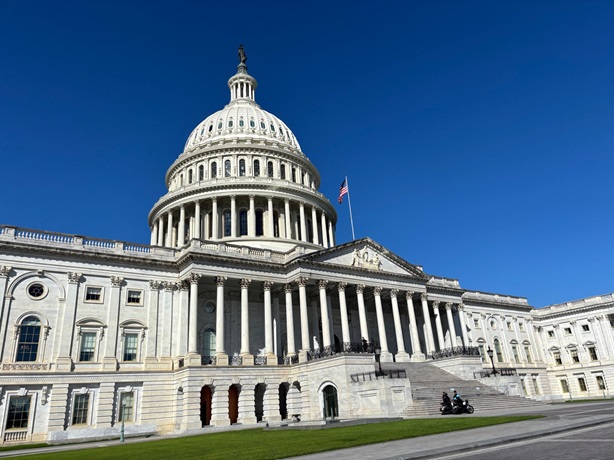
Republican Senate majority has become a reality following the recent election, setting the stage for a shift in U.S. legislative priorities. With control over the Senate, Republicans now hold greater influence in shaping key policy areas, which could have significant implications across the nation.
Republican Senate Majority: What It Means for U.S. Policy
The Republican Senate majority presents new opportunities for the party to influence legislative actions, potentially affecting a wide array of policies, including healthcare, taxes, immigration, and energy. With this control, the Republican Party gains leverage over legislative procedures, as well as the confirmation process for federal appointees, allowing it to advance its agenda and potentially curb initiatives from the executive branch.
Implications of a Republican Senate Majority for Legislative Power
The Senate holds considerable influence over U.S. policymaking, and a Republican majority shifts this power dynamic. Republicans, now with the majority, are expected to push forward their legislative goals while also having the power to obstruct bills that don’t align with their agenda. With the Republican Senate majority, legislation on contentious issues is likely to see significant changes, impacting the speed and content of new laws.
Key Policy Priorities Under Republican Senate Majority
With the majority in the Senate, Republicans are expected to focus on several core policy areas. Their approach to legislation could shape everything from economic policy to foreign affairs, reflecting the party’s conservative agenda.
Economic Policy: Tax Reform and Spending Cuts
One of the key areas Republicans have historically prioritized is economic policy, particularly through tax reforms and reductions in government spending. Under the Republican Senate majority, tax cuts for businesses and individuals could be pursued to promote economic growth, while efforts to reduce government spending on social programs may also gain traction. This shift in focus aligns with the party’s commitment to a smaller government and a more market-driven economy.
Immigration Reform and Border Security
Immigration has been a critical issue for Republicans, and with a Senate majority, the party is expected to push for stricter immigration policies. Enhanced border security, a more restrictive approach to asylum policies, and greater scrutiny over immigration processes are likely to be legislative priorities. This focus on immigration aligns with the party’s stance on national security and aims to address concerns among constituents regarding immigration levels.
Judicial Appointments: The Impact of a Republican Senate Majority
The Republican Senate majority also holds significance for federal judicial appointments. As the Senate is responsible for confirming judges to federal courts, including the Supreme Court, this majority gives Republicans considerable influence over the judicial branch. Judicial appointments can shape U.S. law for decades, as federal judges hold lifetime positions. This means that the current Senate majority could have a long-lasting impact on issues such as reproductive rights, gun control, and environmental regulations.
Republican Senate Majority and the Future of the Supreme Court
With a Republican Senate majority, any future Supreme Court vacancies are likely to result in the appointment of conservative judges. The party’s stance on judicial appointments aims to shape the court with originalist perspectives, favoring interpretations of the Constitution that emphasize limited government and individual liberties. This approach aligns with the party’s philosophy and could further strengthen conservative influence within the judiciary.
How a Republican Senate Majority Affects Bipartisanship
The Republican Senate majority may present challenges for bipartisanship, especially on contentious issues. While there may be potential for bipartisan agreements on infrastructure and economic recovery measures, issues such as climate policy, healthcare reform, and voting rights could become more polarized. The power shift has the potential to intensify political divisions within the Senate, with fewer incentives for cross-party collaboration on key issues.
Prospects for Bipartisanship in a Divided Government
Although the Republican Senate majority may limit bipartisanship, it also offers opportunities for negotiation. In a divided government, the need for compromise can encourage collaboration on less polarizing issues, such as technological advancements, infrastructure, and workforce development. The Republican Senate majority will likely have to navigate these dynamics carefully to balance its legislative goals with the necessity of achieving majority support in the Senate.
Energy and Environmental Policy Under a Republican Senate Majority
Environmental policy is another area likely to be influenced by the Republican Senate majority. The party’s focus on energy independence and support for fossil fuel industries may shape policies around environmental regulations and energy production. While climate change remains a critical issue, the Republican stance generally prioritizes economic growth and energy affordability over stringent environmental regulations.
Republican Senate Majority and Climate Policy
With a Republican Senate majority, ambitious climate policies may face greater scrutiny and potential roadblocks. The party’s support for traditional energy sources, such as coal, oil, and natural gas, may lead to policies that promote energy infrastructure projects and reduce regulatory burdens on these industries. This approach may also encourage investment in technology that seeks to make fossil fuel extraction and usage cleaner, rather than fully transitioning to renewable sources.
Republican Senate Majority: Shaping National Security and Foreign Policy
National security and foreign policy are expected to be high on the agenda for the Republican Senate majority. The party’s focus on a strong national defense and cautious international engagement is likely to influence the Senate’s stance on foreign aid, military spending, and international agreements. Additionally, Republicans may adopt a more assertive stance on China, trade policies, and cybersecurity, emphasizing U.S. strength and self-reliance.
Republican Senate Majority and Relations with Global Powers
The Republican Senate majority could lead to a shift in U.S. relations with key global players. Policies toward countries like China and Russia are expected to remain stringent, with a focus on countering threats to national security and economic interests. Republicans are also likely to prioritize defense spending and modernize the military, positioning the U.S. to better address emerging global threats and protect its strategic interests.
Conclusion: The Impact of a Republican Senate Majority on U.S. Policy
The Republican Senate majority signifies a new chapter for U.S. governance, with implications for both domestic and international policy. By focusing on economic growth, immigration reform, judicial appointments, and national security, Republicans are set to reshape the legislative landscape and advance their party’s core priorities. However, this shift also presents challenges, as political divisions may deepen, and bipartisanship could become more elusive.
The Republican Senate majority not only changes the immediate legislative agenda but also sets a foundation that may influence U.S. governance for years to come. As these developments unfold, American citizens and policymakers alike will watch closely to see how this majority steers the nation’s legislative course, affecting millions of lives across the country.
image credit – Jane Norman/States Newsroom


